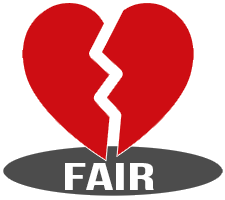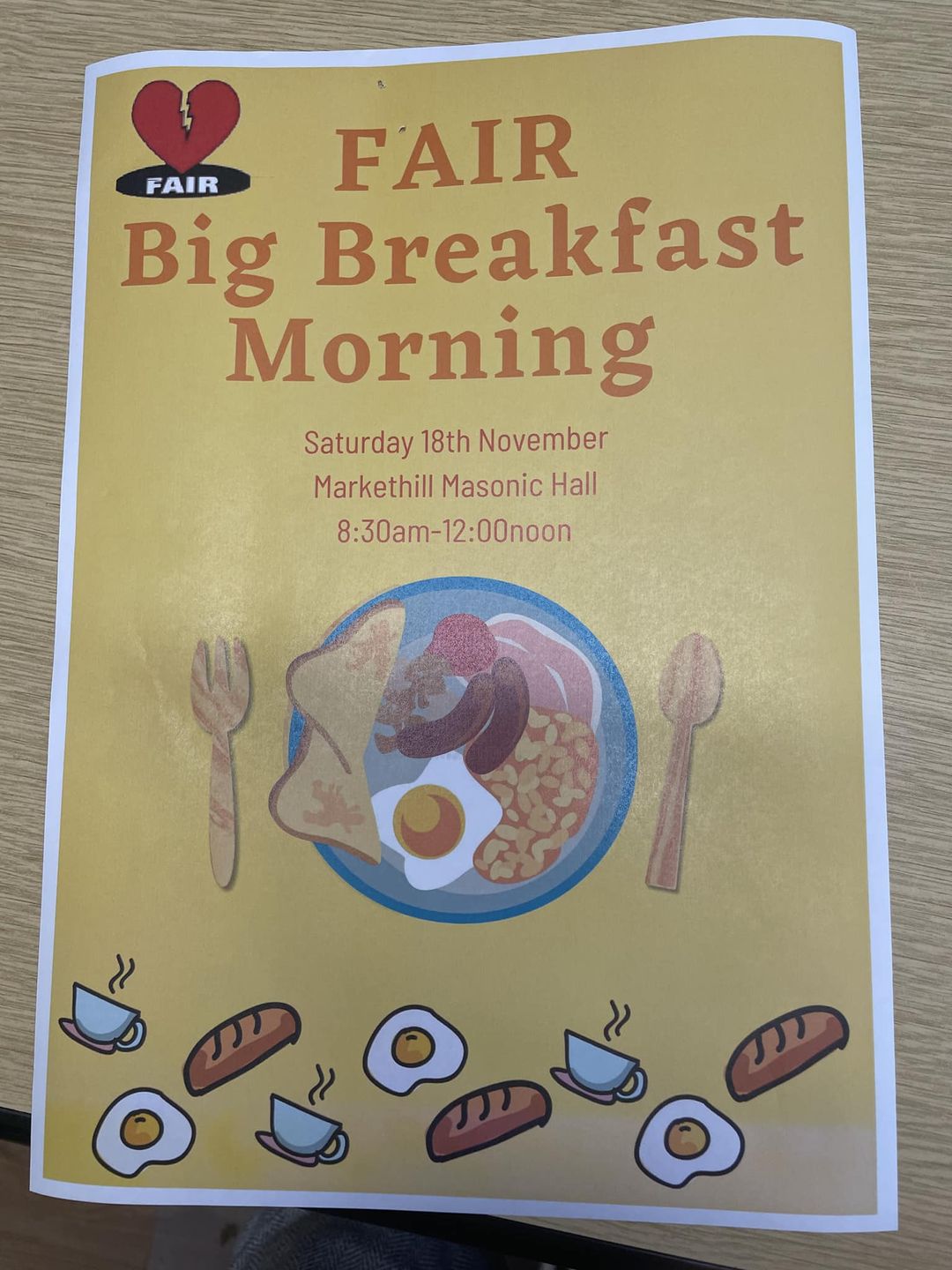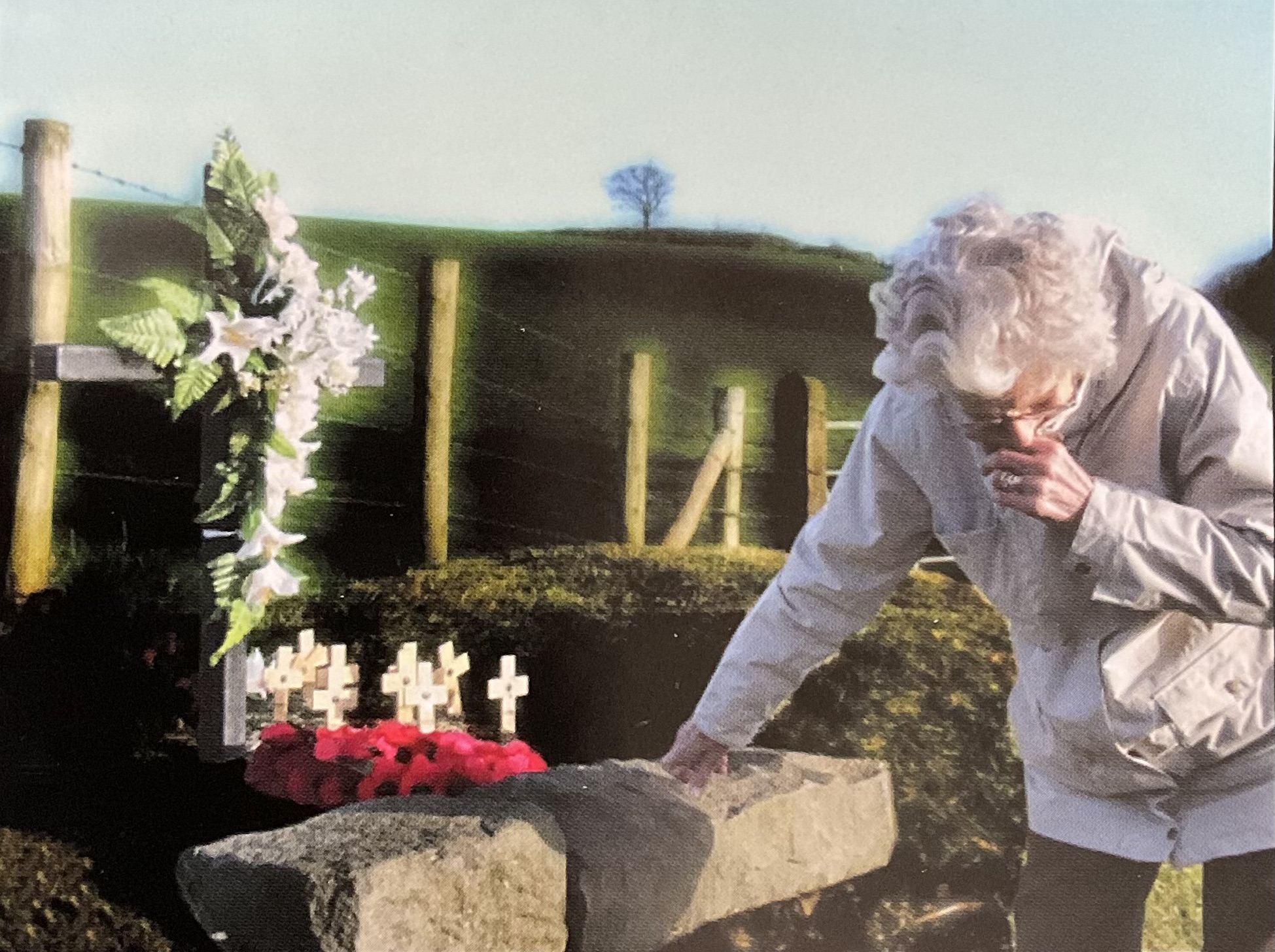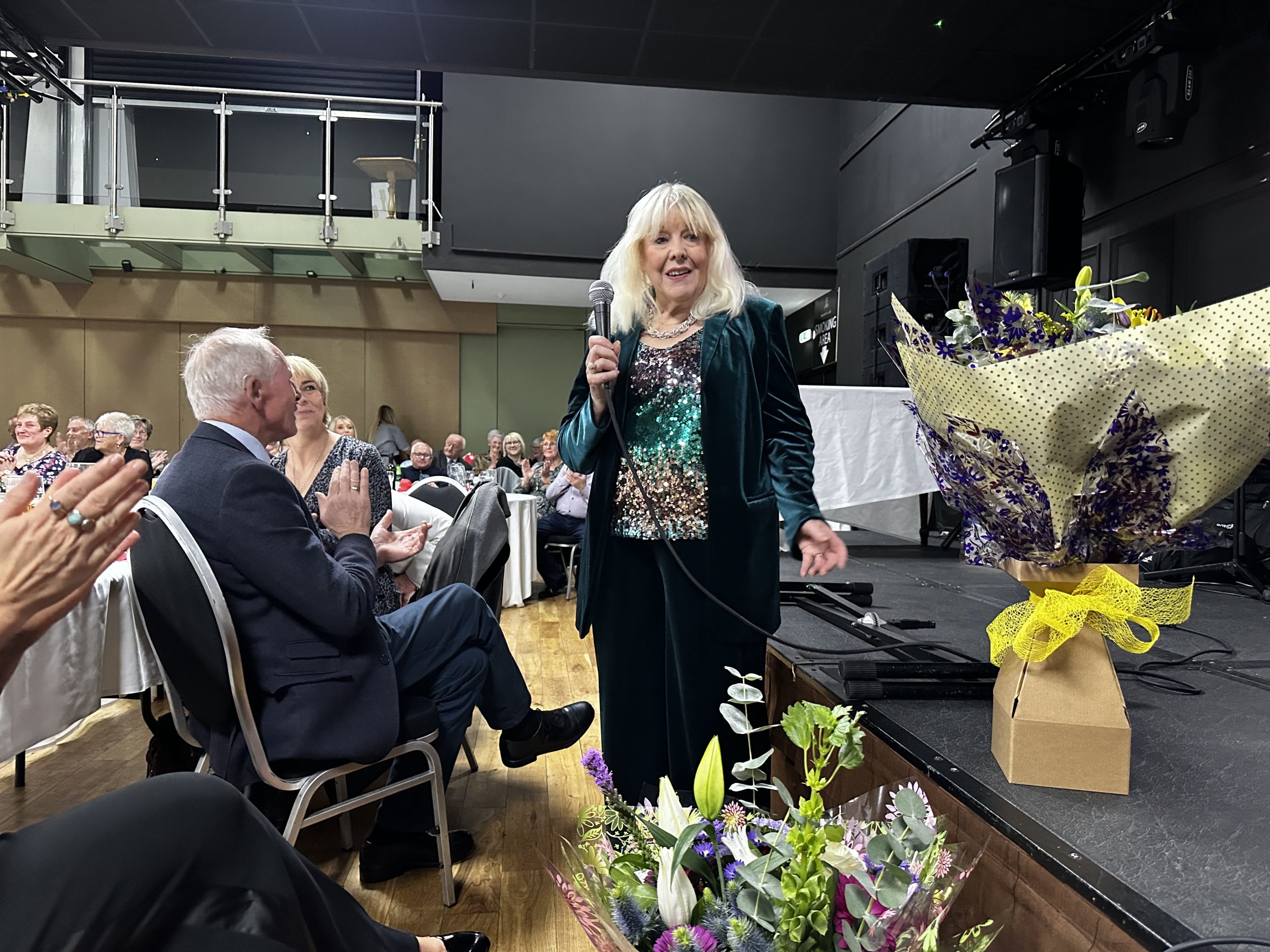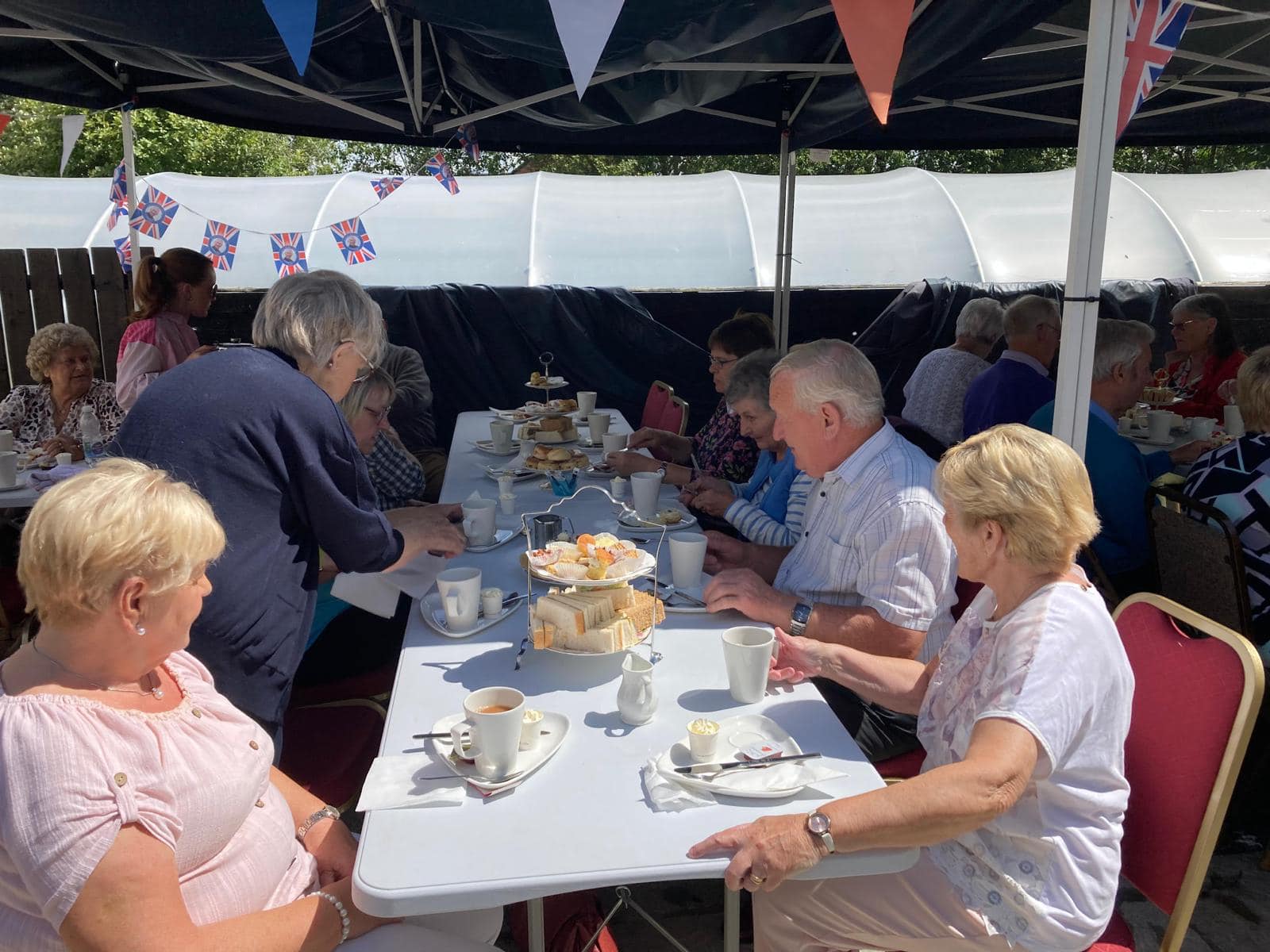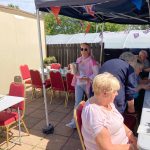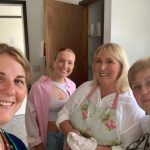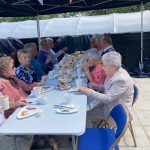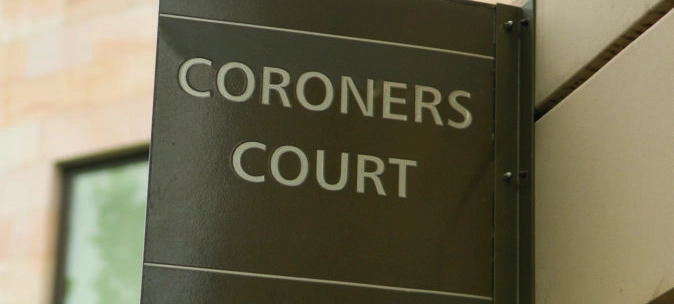Festival of Remembrance 2023
FAIR had a party of 57 attend the Festival of Remembrance in Belfast last night. some members drove there due to restriction in coach 53 seater. They all enjoyed a meal in a Local hotel making this a special evening together. Chairman and wife along with befriending coordinator and Project Manager enjoyed a great view seated in the VIP seating. We were proud to see one of our victims Krystal taking part in the service with a presentation to Lady Brookborough. It was a tremendous evening with fully packed programme of music and dance followed by Service of Remembrance. Excellent and much appreciated event enjoyed by everyone. Thanks and appreciation to the RBL for all their hard work in getting such a great programme together.

Big Breakfast Fundraiser
Big Breakfast Fundraiser
FAIR wish to thank everyone for their support today with their BIG BREAKFAST, for those who attended and all our volunteers for their hard work. A very successful event. All donations go to FAIR Fundraising account.
Thank you to everyone .
International Congress of Victims of Terrorism
FAIR represented Northern Ireland's victims at a series of International Congresses where the voice of innocent victims were amplified and issues debated.
The International Centre for Victims of Terrorism of the San Pablo CEU University Foundation is the institution that established the International Congresses of Victims of Terrorism, which were born with a double objective: to be a forum where the voice of the victims could be heard and to help them to have the recognition they deserve, both by society and authorities.
These Conferences have already been held six times: Madrid (2004), Bogotá (2005), Valencia (2006), again in Madrid (2008), Medellín (2009) and Salamanca (2010). They have taken part in them more than 2.500 terror victims from different countries: Argelia, Argentina, Chile, Colombia, Congo, France, Indonesia, Ireland, Israel, Italy, Mexico, Netherlands, Peru, Russia, Rwanda, Spain, United Kigdom, United States and Uruguay.
Ist International Congress of Victims of Terrorism (Madrid)
 In 2004, the San Pablo CEU University Foundation and the Foundation for Victims of Terrorism (Spain) organized the first edition of the International Congress on Victims of Terrorism in Madrid. The main objective was to recognize the strength of victims of terrorism, who are often forgotten. This way, they could feel the warmth, respect and affection of the entire society. This first edition was opened by HRH Felipe de Borbón, Prince of Asturias. In this first Congress, victims of terrorism from United States, Israel, Ireland, Colombia, Argelia and Spain had the chance to speak and share their experiences. Politicians, judges and journalists spoke about how important was not to forget the victims of terrorism. The closing lecture was given by Mr. José María Aznar who, by that moment, was President of the Spanish Government.
In 2004, the San Pablo CEU University Foundation and the Foundation for Victims of Terrorism (Spain) organized the first edition of the International Congress on Victims of Terrorism in Madrid. The main objective was to recognize the strength of victims of terrorism, who are often forgotten. This way, they could feel the warmth, respect and affection of the entire society. This first edition was opened by HRH Felipe de Borbón, Prince of Asturias. In this first Congress, victims of terrorism from United States, Israel, Ireland, Colombia, Argelia and Spain had the chance to speak and share their experiences. Politicians, judges and journalists spoke about how important was not to forget the victims of terrorism. The closing lecture was given by Mr. José María Aznar who, by that moment, was President of the Spanish Government.
IInd International Congress of Victims of Terrorism (Bogota)
 The second edition was held in February 2005 in Bogotá (Colombia). On this occasion, Sergio Arboleda University in Bogotá organised the event. The opening lecture was given by Mr. José María Aznar, and Álvaro Uribe, President of the Republic of Colombia gave the closing lecture. Victims of terrorism from Colombia and other Latin American countries, Russia, Spain, Indonesia, Ireland, United States and Israel attended the conferences.
The second edition was held in February 2005 in Bogotá (Colombia). On this occasion, Sergio Arboleda University in Bogotá organised the event. The opening lecture was given by Mr. José María Aznar, and Álvaro Uribe, President of the Republic of Colombia gave the closing lecture. Victims of terrorism from Colombia and other Latin American countries, Russia, Spain, Indonesia, Ireland, United States and Israel attended the conferences.
IIIrd International Congress of Victims of Terrorism (Valencia)
 In February 2006, Cardenal Herrera CEU University in Valencia hosted the III International Congress of Victims of Terrorism. The venue was the Palace of Congresses of the Valencian capital, where more than 700 people registered, including victims of terrorism and attendees. Terror victims from Peru, Russia, United States, Ireland, United Kingdom, Colombia and Spain took part.
In February 2006, Cardenal Herrera CEU University in Valencia hosted the III International Congress of Victims of Terrorism. The venue was the Palace of Congresses of the Valencian capital, where more than 700 people registered, including victims of terrorism and attendees. Terror victims from Peru, Russia, United States, Ireland, United Kingdom, Colombia and Spain took part.
TRH Prince and Princess of Asturias opened the third edition of the International Congress on Victims of Terrorism. The closing lecture was given by Mr. José Antonio Alonso, Minister of Interior of Spain. Mr. Francisco Camps, President of the Autonomous Community of Valencia, and Mrs. Rita Barberá, Major of Valencia, also spoke at the closing lecture. During this edition, the attendees had the opportunity to see a photographic exhibition by Miguel Angel Blanco Foundation, which showed the cruelty and the tragic consequences of the terrorist scourge.
IVth International Congress of Victims of Terrorism (Madrid)
 The IVth International Congress of Victims of Terrorism was held at the San Pablo CEU University in Madrid in January 2008. More than 400 victims of terrorism from different countries which have suffered, and still suffer, terrorist attacks (United States, Ireland, Israel, Peru, Uruguay, France, Colombia, Argentina, Holland, Italy and, of course, Spain) attended the event.
The IVth International Congress of Victims of Terrorism was held at the San Pablo CEU University in Madrid in January 2008. More than 400 victims of terrorism from different countries which have suffered, and still suffer, terrorist attacks (United States, Ireland, Israel, Peru, Uruguay, France, Colombia, Argentina, Holland, Italy and, of course, Spain) attended the event.
Among the participants in the fourth edition were TRH Prince and Princess of Asturias, who opened the Congress; Mr. Alvaro Uribe, President of the Republic of Colombia; Mr. Fernando Araujo, Minister of Foreign Affairs of Colombia; Mrs. Esperanza Aguirre, President of the Community of Madrid; and Mr. Mariano Rajoy, leader of the main opposition party in Spain. During this Conference, the attendees could also see the photographic exhibition of the Miguel Ángel Blanco Foundation.
Vth International Congress of Victims of Terrorism (Medellin)
 With the background of the four editions, in May 2009 took place in Medellín (Colombia) the V International Congress of Victims of Terrorism. It was organised by the Colombian institutions Visible Victims Foundation and Sergio Arboleda University, in collaboration with the International Centre for Victims of Terrorism of the San Pablo CEU Foundation.
With the background of the four editions, in May 2009 took place in Medellín (Colombia) the V International Congress of Victims of Terrorism. It was organised by the Colombian institutions Visible Victims Foundation and Sergio Arboleda University, in collaboration with the International Centre for Victims of Terrorism of the San Pablo CEU Foundation.
TRH Prince and Princess of Asturias attended the Inaugural Ceremony and they were accompanied by Mr. Álvaro Uribe, President of the Republic of Colombia and other authorities. Nearly 1.000 victims of terrorism from different countries, including, Rwanda, the United States, Northern Ireland, Mexico, Argentina, Chile, France, Spain and, of course, Colombia, attended the Conference. The closing lecture was given by Mr. Felipe Calderón, President of México.
VIth International Congress of Victims of Terrorism (Salamanca)
 Finally, the Sixth International Congress of Victims of Terrorism was on February 11th – 13th 2010 in Salamanca. Over 400 victims of terrorism from different countries which have suffered or are suffering from this scourge, such as Argentina, Congo, Colombia, United States, France, Ireland, Israel, Italy, United Kigdom, Russia and Spain, took part. Once more, the opening ceremony was given by TRH Prince and Princess of Asturias, and Mrs. Arantza Quiroga, President of the Basque Country Parliament gave the closing lecture.
Finally, the Sixth International Congress of Victims of Terrorism was on February 11th – 13th 2010 in Salamanca. Over 400 victims of terrorism from different countries which have suffered or are suffering from this scourge, such as Argentina, Congo, Colombia, United States, France, Ireland, Israel, Italy, United Kigdom, Russia and Spain, took part. Once more, the opening ceremony was given by TRH Prince and Princess of Asturias, and Mrs. Arantza Quiroga, President of the Basque Country Parliament gave the closing lecture.
During the events planned for this sixth edition it took place a tribute act, called Salamanca with the victims of terrorism, where the inhabitants had the opportunity to participate directly in the Congress and express their affection and solidarity with victims of terrorism. Thousands of people gave their support to the victims in the Salamanca’s main square.
VIIth International Congress of Victims of Terrorism (Paris)
The French Association of Victims of Terrorism (AfVT.org), member of the European Network of Associations of Victims of Terrorism (NAVT), in partnership with the International Observatory for the Victims of Terrorism (CEU), organized the VIIth International Congress of Victims of Terrorism that recently took place September 15-17, 2011 at the amphitheatre Foch of the Military School of Paris.
This was the first time that the International Congress of Victims of Terrorism took place outside a Spanish speaking country. The VIIth International Congress of Victims of Terrorism in Paris included representation of victims of terrorism from 29 different countries around the world and included victims, civil society actors, political leaders, representatives of various institutions, international experts and journalists.
Comity of Honor
Finally, it is worth highlighting that the six editions of the International Congresses on Victims of Terrorism have had superb Honour Committees, including TRH Prince and Princess of Asturias, the President of the Spanish Government, the President of the Republic of Colombia, the President of the Congress Deputies and Senate of Spain, several Presidents of the Governments from Spain and Colombia, the Ombudsman and regional authorities, such as the Presidents of the Autonomous Communities of Madrid, Valencia, Castilla y León and the Mayors of Madrid, Valencia, Medellín and Salamanca.
Anniversary Dinner
Celebrating 25 Years of Strength and Resilience: FAIR Dinner at Banbridge
Introduction: In a world that often overlooks the plight of victims and survivors, the FAIR Victims Group has stood as a beacon of hope and support for a quarter of a century. This year marks a remarkable milestone – the 25th Anniversary of the FAIR Victims Group. To celebrate this journey of strength, resilience, and justice, the group organised a special dinner at Banbridge. This event was a poignant and empowering gathering, bringing together survivors, advocates, and allies to commemorate the progress made and to renew the commitment to the ongoing fight for justice.
Reflecting on 25 Years: Founded in 1998, FAIR has been unwavering in its dedication to providing support, understanding, and resources to those who have experienced injustice. Over the past 25 years, the group has not only been a lifeline for victims but has also played a pivotal role in raising awareness about the challenges survivors face in their pursuit of justice.
The journey has been marked by triumphs and challenges, but through it all, FAIR has remained steadfast in its mission to advocate for fairness, accountability, integrity, and respect. The anniversary is an opportunity to reflect on the progress made and acknowledge the collective strength that has fueled the group's impact over the years.
A Night of Celebration at Banbridge: The anniversary dinner at Banbridge promises to be a night filled with reflection, celebration, and unity. Set against the backdrop of this picturesque venue, attendees will have the chance to connect with fellow survivors, share stories, and find solace in the shared experience of overcoming adversity.
The program for the evening includes speeches from key figures within the FAIR Victims Group, highlighting the achievements and milestones reached over the past 25 years. Special guests, including advocates and community leaders, will also share their insights on the importance of supporting victims and survivors in their quest for justice.
The dinner at Banbridge is not just a celebration but a recommitment to the principles that have guided the FAIR Victims Group throughout its existence. It is an acknowledgment of the strength of survivors and a call to action for continued advocacy in the face of ongoing challenges.
Looking Forward: As FAIR enters its next chapter, the anniversary dinner serves as a springboard for the future. With the unwavering support of its members, allies, and the broader community, the group aims to continue its mission of creating a more just and compassionate society.
As we celebrate 25 years, let us not only reflect on the past but also look forward with optimism and determination. The journey ahead may be challenging, but with a united front and a commitment to justice, FAIR will undoubtedly continue to make a lasting impact in the lives of survivors and in the broader fight for a fair and equitable society.
Conclusion: The 25th Anniversary dinner at Banbridge is more than a commemoration of the past; it is a celebration of the resilience, strength, and unity that define FAIR and its members. As survivors, advocates, and allies come together to mark this significant milestone, they stand not only as a testament to the progress made but as a beacon of hope for the future. May FAIR continue to shine brightly for the next 25 years and beyond, inspiring change and fostering justice for all.
Picture Framing
FAIR’s Picture Framing has been one of the flag- ship projects of the group with a lot of interest and an increasing number of orders. With tuition from a professional Picture-Framer, a full work- shop of tools and materials, and a couple of hours to spare a week, anyone with an interest in learning a new and exciting skill can become involved.
The course is free and at the end of it you will have the opportunity to help FAIR develop it’s pioneering business.
Come and be part of the team.
Coffee Mornings
For the ladies of the group, the Coffee Mornings provide a chance to get out of the house and into a relaxed and friendly atmosphere for a morning’schat.
Sharing time with like-minded individuals can be a therapeutic activity, and the addition of some quality coffee to the mix is sure to brighten your day
Highlights of the High Tea
With Afternoon teas and high teas all the fashion now our members and friends were in for a real treat. FAIR organised an al fresco high tea today where everyone enjoyed time together before the holiday break. With many events and activities planned for the summer months it was good to enjoy a more relaxed occasion. Thank you to our catering volunteers Liza, Charlean, Mary, Jesica and Sam. a big thank you to May, Lisa, Mary and Sam for the delicious sweets served. Great time was had by all.
Veterans Mental Health
Mental health and suicide prevention training

Danny Kinahan, Veterans Commissioner with Alison Campbell, course trainer
The Commissioner’s Office, in conjunction with Rainbow Bright Training, is currently facilitating a number of mental health and suicide awareness training sessions to members of Royal British Legion branches, Ulster Defence Regiment and Royal Irish Associations.
Many veterans experience poor mental health and reaching out can be difficult because, despite many advances, there is still a stigma attached to the whole area of mental health.
Here in Northern Ireland we have our own bespoke circumstances where many veterans are reliving their lived trauma as they still live in their conflict zone. Research conducted in Northern Ireland by the Mental Health Foundation in 2016 show’s poor mental health is 25% more prevalent than that of England by comparison. What is also interesting to note, further research by the Mental Health Foundation found that young veterans are at a higher risk of suicide in the first 2 years after they leave service.
In this course, participants will learn the following:
– The factors that contribute to poor mental health, emotional distress, and suicide.
– The relevance of mental health and emotions to the prevention of suicide.
– A Mental Health First Responder Connect 4-Ways Model.
– Tools and resources for support.
– How to fortify life through self-care.
It is intended that this training programme will support us in our goal to reduce isolation and improve mental health outcomes for veterans and families of veterans through best practice in this field.
The next training sessions will take place on the following dates:
Tandragee Veterans Centre: Friday 21 April 23
Lisburn Royal British Legion: Friday 19 May 23
Limavady Services Club: Friday 9 June 23
If interested in participating in this training, please contact our office via email: commissioner@nivco.co.uk or Telephone: 07971833160
Following the Football
A great night was enjoyed by all ages at the National Stadium - Windsor Park. As off-side rules were explained and famous players of yesteryear debated the group had a real lesson in football. The tour of the grounds and then the match was a real high point for many.
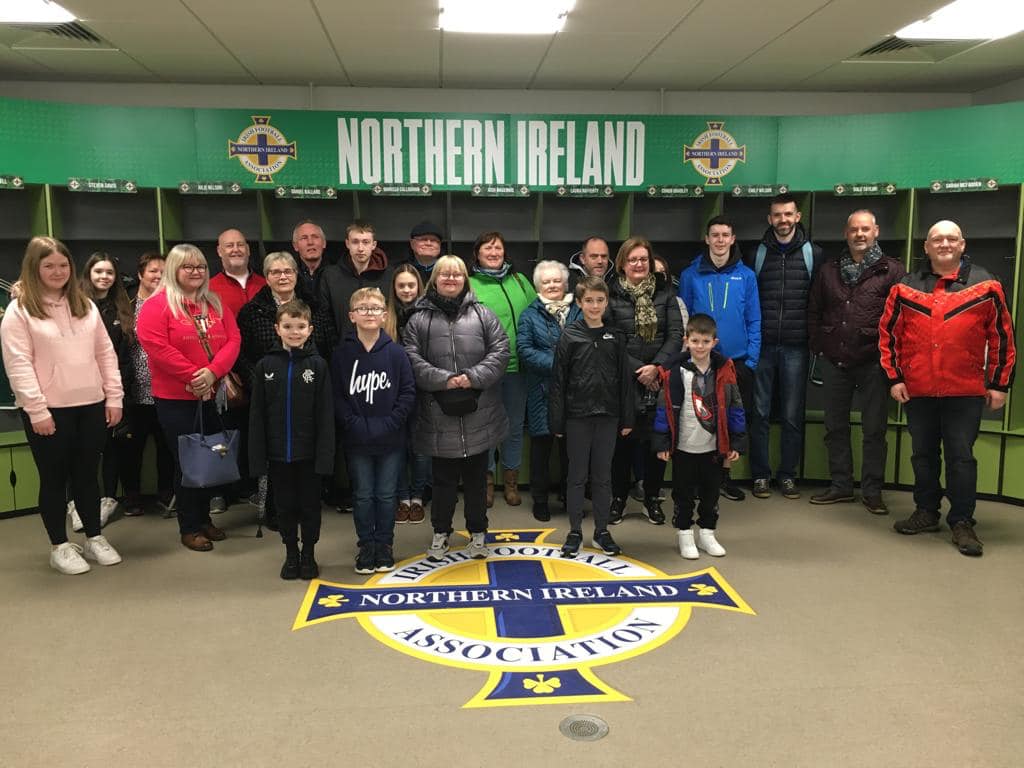
Introduction to Inquests
One important aspect of the support FAIR provides is to families as they engage with the criminal justice system. Sadly many families have never seen justice and for those who do get a taste of it find it a leaves a very bitter taste. The role of FAIR has evolved over the years from taking a leading role in justice and human rights work in many pivotal cases to today providing the support and care to those who seek justice. Behind the headlines we deal with the heartache and with the practical support and care needed to equip victims to engage with the criminal justice system. They have often waited decades and the process they encounter can often re-traumatise them. Weeks of attendance at court, the disclosure of painful details around the murder of their loved ones and the frustration of seeing those responsible often escape justice takes it toll.
Our work is often behind the scenes, preparing victims and families for this process, managing their expectations and giving them a listening ear and a range of support as they proceed. The first step for many is to engage with the Police or other legacy investigative processes. Then a Coroners Court will hold an Inquest. An inquest is an inquiry into the circumstances of a death. The purpose of the inquest is to find out who the deceased person was and how, when and where they died and to provide the details needed for their death to be registered. It is not a trial. It is not for the Coroner to decide, or appear to decide, any question of criminal or civil liability or to apportion guilt or attribute blame.
The average time families have waited for a conclusion to adjourned inquests is 20 years and seven months. Many of the reopened inquests waiting to be heard concern deaths that occcurred as far back as 1971. The majority of the cases have not led to prosecutions. Many inquests were opened shortly after the deaths happened but were adjourned and never concluded, while half were reopened in recent years on the orders of John Larkin QC, the then attorney general of Northern Ireland, following complaints that the original hearings were fundamentally unfair.
In February 2019 the Lord Chief Justice, Sir Declan Morgan, issued the following statement in response to the announcement by the Department of Justice that funding is to be made available for legacy inquests commencing in April 2019:
“On 12 February 2016 I proposed a plan for dealing with what have now come to be known as the “legacy inquests”. Legacy inquests have an impact on bereaved families, those who have served in the police and armed forces, other state agencies; and very often the wider communities in which these deaths occurred.
I am pleased that funding is now going to be provided to implement the plan for dealing with legacy inquests which I proposed over three years ago. There is clearly a great deal of preparatory work to be done to establish the Legacy Inquest Unit and deliver my plan. During this preparatory period, it will be important to engage with all the relevant agencies and parties who will have to play their part in ensuring that the outstanding inquests can be completed within a five year period once the unit has been established.
While the preparations for the Legacy Inquest Unit are ongoing, I expect that there will be a further Judge-led review to follow up on the work undertaken by Lord Justice Weir when he carried out a comprehensive review of these cases in February 2016. We anticipate this review will be completed before the summer recess.”
Sadly progress has been slow and the entire process has become politicised. In the case of the Kingsmills Inquest families has been continually denied access to information and have lost faith in the process. This experience has caused more suffering and during it many victims have passed away before they can see the truth established. Through all of this FAIR has provided support and care giving victims the strength to continue.
One of our important roles is to provide information to victims and families as they engage in the criminal justice system. That ranges from basis advice and orientation about what they can expect through to complex legal advice and support. Often an explanation of what an Inquest is will help manage expectations and avoid disappointment. A sample of the information we provide is included below.
Inquests
An inquest is an inquiry into the circumstances surrounding a death. The purpose of the inquest is to find out who the person was and how, when and where they died, and to find out the details the Registrar of Deaths need to register the death.
An inquest is not a trial. It is not the role of the Coroner to decide any question of criminal or civil liability or to apportion guilt or attribute blame.
Once the Coroner’s investigation into a death is complete, the Coroner will decide if an inquest is to be held. This can take some time to complete and is dependent on the circumstances of the death and the final report of the postmortem examination.
If the Coroner is informed that someone has been charged with an offence directly linked to the death, the inquest or a decision on whether to hold and inquest, will not be made until the criminal proceedings end.
If an inquest is to be held a date will be arranged in consultation with the family. Inquests are open to the public and the media.
Coroners decide who should give evidence as witnesses at an inquest. Witnesses will first be questioned by the Coroner, and there may be further questions by ‘properly interested people’ or their legal representatives. Person’s with a ‘proper interest’ include:
- relatives of the deceased
- the executor(s) of the deceased’s will or a person appointed as the deceased’s personal representative
- solicitors acting for the next of kin
- insurers with a relevant interest
- anyone who may, in some way, be responsible for the death
- others at some special risk or appearing to the Coroner to have a proper interest
The findings of an inquest will record the essential facts about the means by which the deceased came by his or her death.
Coroners Inquest (PDF) - Northern Ireland Court Service Online
